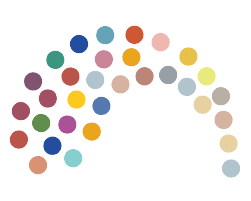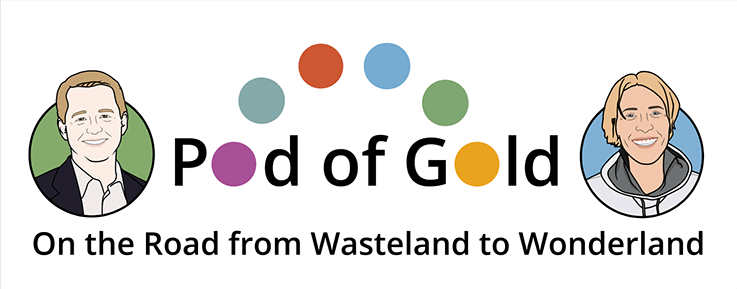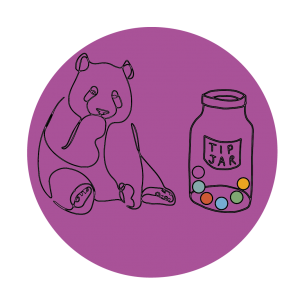Our food system is broken, producing massive amounts of waste in some places and leaving people starving in others. (Not to mention the damage our agricultural practices are doing to the environment.) In this episode, we speak with Lujain Alqodmani from EAT about what needs to happen so all people can eat food that’s both healthy and sustainable.
Posts
The industrial production of beef comes at a major cost to the environment, degrading soil quality and emitting extreme amounts of greenhouse gas into the atmosphere. But what if there was a better way? In this episode, we speak with Langdon Hill, who’s turned about 20,000 acres of Arizona desert into a ranch laboratory to see if it’s possible to raise cattle in a way that nourishes the environment instead of breaking it down.
Imagine if the science taught in schools put the health of our planet front and center. In this episode, we speak with Eugene Cordero, a professor at San Jose State University who’s created the Green Ninja science curriculum to foster the next generation of environmental stewards.
Advancements in modern medicine have made us healthier and improved our quality of life. But at what cost? In the pursuit of science, many of us have lost touch with indigenous modes of healing. We spoke with Olatokunboh Obasi, an herbalist and teacher in Puerto Rico, about the wisdom of indigenous teachings that can bring us in better balance within ourselves and with nature.
A healthy ocean is essential to the survival of almost all life on Earth. Unfortunately, at it’s last check up, the ocean wasn’t doing so hot. Acidification, melting ice caps, pollution, and overfishing are just a few of the threats to its wellbeing. In this episode, we speak with Max Bello of Mission Blue about the policy interventions and individual actions that could pull the ocean back from the brink.
Pandemic. Vaccine. Climate emergency. Is it controversial to say that we need scientific knowledge to understand and deal with issues like these? Not on our show. But it’s no question that public trust in science has diminished in recent years. In this episode, we speak with Avisha NessAiver (@distilledscience) about his work delivering digestible scientific knowledge on social media and how we can reestablish trust in this essential field.
What is life? Ask a biologist, a philosopher, and a priest and you’ll get three different answers. That’s why Dr. Luigi Luisi founded the Cortona Week, an interdisciplinary summer program where students and young leaders from all over the world and from all disciplines can come into contact and exchange ideas. In Luigi’s view, the expansion of the mind and heart offered at Cortona is vital to create leaders that can tackle the multifaceted problems we face today.




